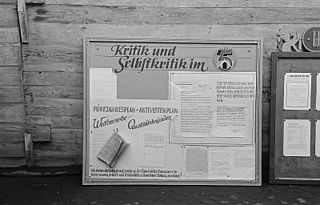Yes the Democratic party leaned a lot from the Chinese cultural revolution. They are in the early stages of setting up a self criticism program for US citizens to get accustomed to. Have your people set up indoctrination camps yet?(other than Berkely?) From Wikipedia:
Under some systems of communism, party members who had fallen out of favor with the nomenklatura were sometimes forced to undergo "self-criticism" sessions, producing either written or verbal statements detailing their ideological errors and affirming their renewed belief in the Party line. Self-criticism, however, did not guarantee political rehabilitation, and often offenders were still expelled from the Party, or in some cases even executed.[ citation needed]
In the Soviet Union, "criticism and self-criticism" were known as kritika i samokritika ( Russian: ??????? ? ???????????).
In the People's Republic of China, self-criticism—called ziwo pipan ( ?? ??) or jiantao ( ??)—is an important part of Maoist practice. Mandatory self-criticism as a part of political rehabilitation or prior to execution—common under Mao, ended by Deng Xiaoping, and partially revived by Xi Jinping—is known as a struggle session, in reference to class struggle.[ citation needed]

East German factory wall newspaper making use of the behavioral control mechanism of "Criticism and Self-Criticism."
Such sessions could be elaborate, public and frequent, and included denunciations. Under the Khmer Rouge, self-criticism sessions were known as rien sot, meaning "religious education". In his memoir The Gate, François Bizot recalls observing the Khmer Rouge engaging in frequent self-criticism to reinforce group cohesion during his imprisonment in rural Cambodia in 1971. He wrote:
"Several evenings a week—every evening it didn't rain—the guards gathered for a collective confession. Douch ( Kang Kek Iew) did not take part. I was a privileged witness to these circles, where they would sit on the ground under the direction of an elder. Military homilies alternated with simple, repetitive songs. "Comrades," began the eldest, "let us appraise the day that has passed, in order to correct our faults. We must cleanse ourselves of the repeated sins that accumulate and slow down our beloved revolution. Do not be surprised at this!"
"I," said the first one, "should have replaced the rattan rod today, the one north of the first shelter, which we use to dry clothes. I have done nothing about it... on account of my laziness." The man presiding over the session nodded with a frown, though not severely, only meaning to show that he knew how hard it was to combat inertia, so natural in man when he is not sustained by revolutionary convictions. He passed wordlessly onto the next man, indicating who this should be by pursing his lips in his direction.
"I," this one uttered, "er... I fell asleep after my meal, forgetting to make sure the bamboo urine containers in the shelters had been emptied properly."
When each had spoken in turn, they moved on to the next stage, which the elder introduced as follows: "The beloved Angkar congratulates you, comrades, for these admissions, which are so essential to the progress of each of us. In order to make our actions shine forth for ever, let us now try fearlessly to help our brother better detect his own faults, those he has not confessed because he was unwilling to see them. Who wishes to speak?" ... |





